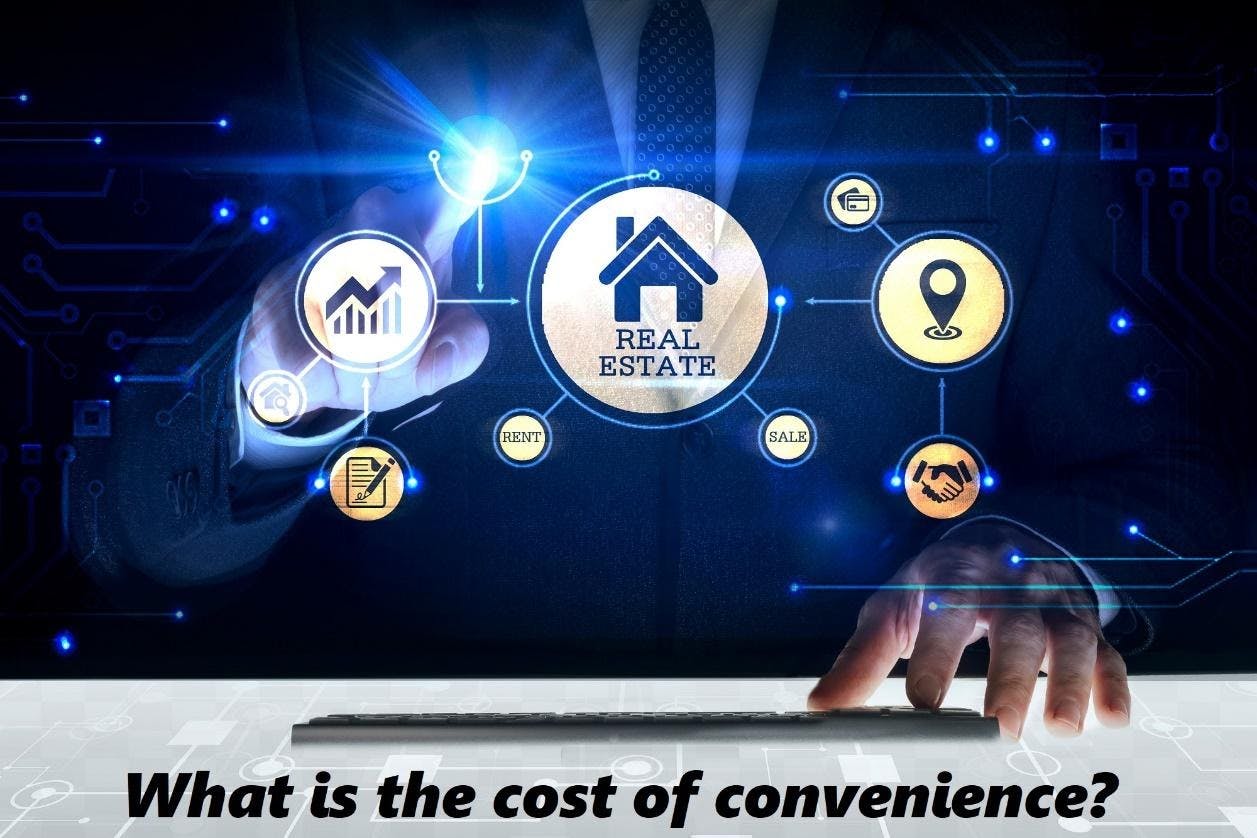What happens when new technology, time-saving measures and other conveniences come to an industry and cause disruption? In the case of residential real estate, it can come with a cost.
In an app-based world of same-day deliveries, vehicle-sharing services and short-term home rentals, consumers are embracing disruptive technology that brings ultra-convenience. Now, in some metro areas of the country, homeowners have the option to use a service that expedites home sales in the form of a guaranteed offer from a buyer – an iBuyer.
With a wealth of information available online, many of today’s consumers are incredibly knowledgeable about the home-selling process. Add the desire to save time before settlement, and it’s easy to see why a seller might be tempted to consider a closed-market offer to hand over the home without the help of a real estate professional.
The question to sellers is: How much is the cost of this convenience?
First a brief iBuyer overview: An iBuyer is a company, organization or investor that buys homes directly from the seller touting an easy, seamless transaction. The definition of an iBuyer is instant buyers of homes that are sometimes distressed (not often), usually less than 40 years old and for people wishing to have the place taken off their hands without bothering to go through the promotion, marketing and presentation of the open house and sales negotiation. The industry has had these type of “instant buyers” for decades.
The “i” could also equate to institutional investor money – from Wall Street or high-powered financial backers from the Bay Area. Billions of dollars are being invested in iBuyers. Opendoor owns the biggest market share nationwide and has more than $4 billion in capital, according to Laura Brady, CEO of luxury home auction company Concierge Auctions, who added not a single iBuying entity is turning a profit.
While having only a 0.2% national market share in 2018, iBuyers were on track to do 20 times more business in 2019 than the previous year, Brady estimated last autumn.
These entities use an algorithm to set a “fair market” price and can typically close on the deal in days. Some consumers selling their home often want speed and convenience over accepting the traditional three-week-or-more process of preparing and selling the home on the open market.
In exchange for that convenience, sellers forego a significant amount of money – weighed down by fees for repairs and services. Not all sellers receive an offer; some homes are just not a good fit for iBuyers and they politely decline to make an offer. (iBuyers are not house flippers. They are generally looking for turnkey properties.)
These businesses are making inroads across the South, including Raleigh, N.C. (where, as of late 2019, they have about 7% market share), Phoenix (about 5% share), Atlanta and Houston. While they help start the selling and buying process, iBuyer companies typically do not offer valuable local knowledge to buyers and sellers, provide hyperlocal data reports nor include personal attention to consumers.
While it’s difficult to compare iBuyer offers to actual home sale prices, in July 2019 Andrea Riquier of Marketwatch.com found “that [iBuyer] offers would net their customers, on average, 11% less than owners who choose to sell their homes on the open market, when fees and other costs are considered, translating to tens of thousands of dollars lost.”
John L. Scott Real Estate has a large footprint from Idaho to California but it is only seeing iBuyers in Portland. It estimates iBuyers are giving Portland-area sellers about 6.4% less than the net proceeds of a traditional home transaction.
My curiosity got to me, so I further researched the real cost for sellers choosing to hand over their homes to iBuyers. Check out my Cost of Convenience chart, which you can access at the bottom of this article; it offers a line-by-line comparison of a mythical $700,000 home sale completed by a Realtor ® and iBuyer. The bottom line will surprise you. (Downloading this insightful chart first asks for some info about you.)
The ideal seller for an iBuyer is one who is in a hurry to leave (perhaps for a new job), is selling the home for the family (usually after a death of the owner) or potentially a first-time seller less aware of the traditional home-selling process. Working directly with an iBuyer is quite similar to a “For Sale By Owner” scenario, without the assistance of a real estate professional.
In a more traditional real estate experience, sellers and their Realtors ® list the home at or above fair market value and create the opportunity for wider interest that could drive up the final sales price. And we all know that buyers far outnumber sellers in today’s Puget Sound housing market, often prompting multiple-offer scenarios and greater profit for owners.
Sellers can push a button and get “X” dollars with an iBuyer. As a real estate professional, I, too, can push a button and activate my team to prepare the home for sale – with photography, staging and marketing to present, promote and price the home to sell. I can also connect sellers to other services – home inspectors, tradespeople, cleaners, landscapers and movers.
My aim has always been to help sellers market their home to potential buyers at the highest possible price that sells the home in the shortest amount of time and at the most favorable terms. I completely understand not having to show your home can be appealing – but is the cost of convenience worth it?




